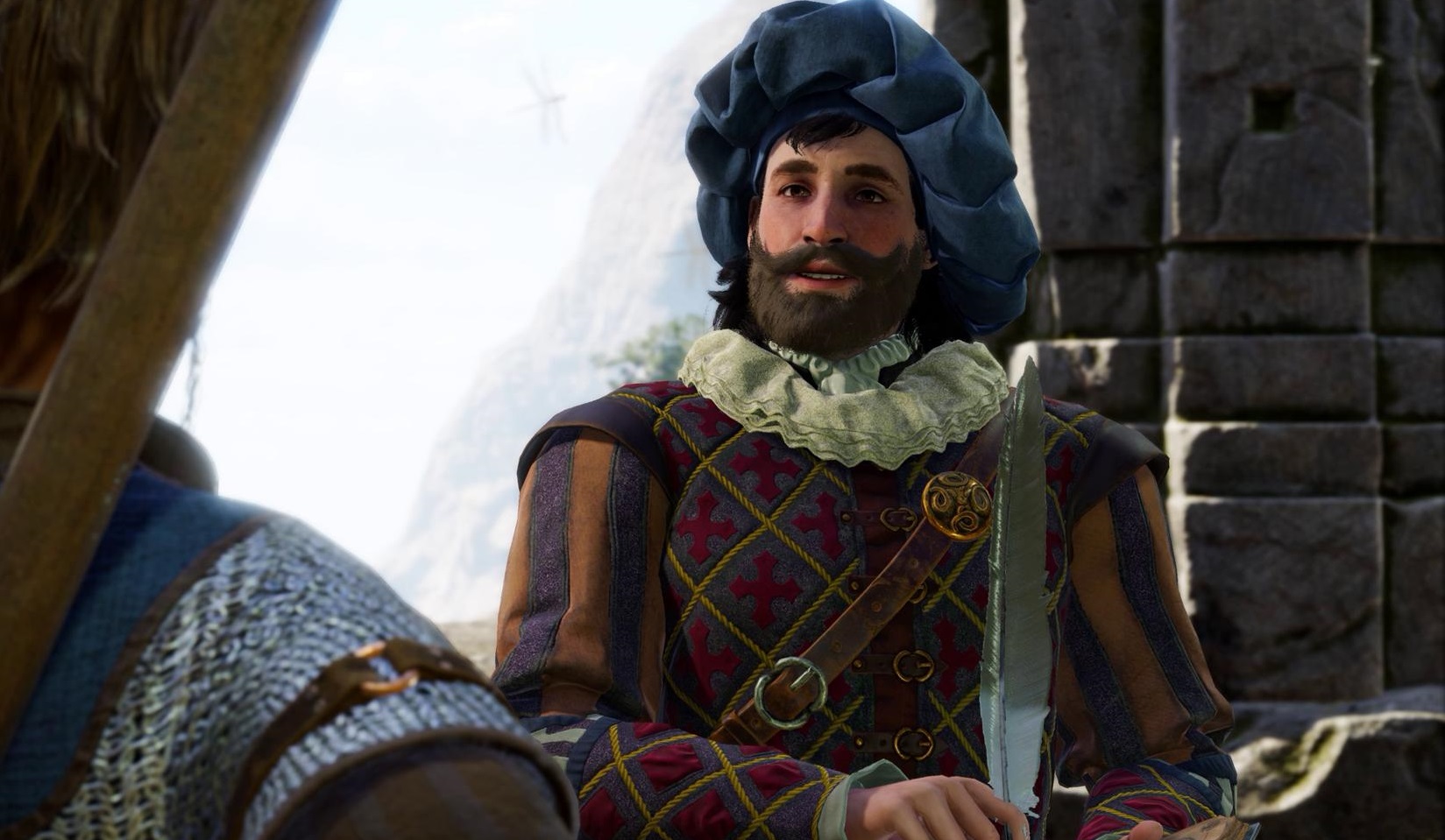
Baldur's Gate 3 is finally out of early access, which means you're probably ready to start setting fire to a wide variety of fantasy monsters, chatting up your companions and acquiring far too much loot for one (or four) people to carry. But before you set off on your adventure, allow me to make your journey a little bit smoother with these essential tips.
Even if you're familiar with D&D or the original Baldur's Gate RPGs, this is a meaty and complex affair, elevated by lots of immersive-sim-adjacent features. It's an RPG that encourages a lot of experimentation, and that's part of the fun, but hopefully you'll be able to avoid some unnecessary deaths and other obstacles with my advice.
Explore the nautiloid crash site thoroughly
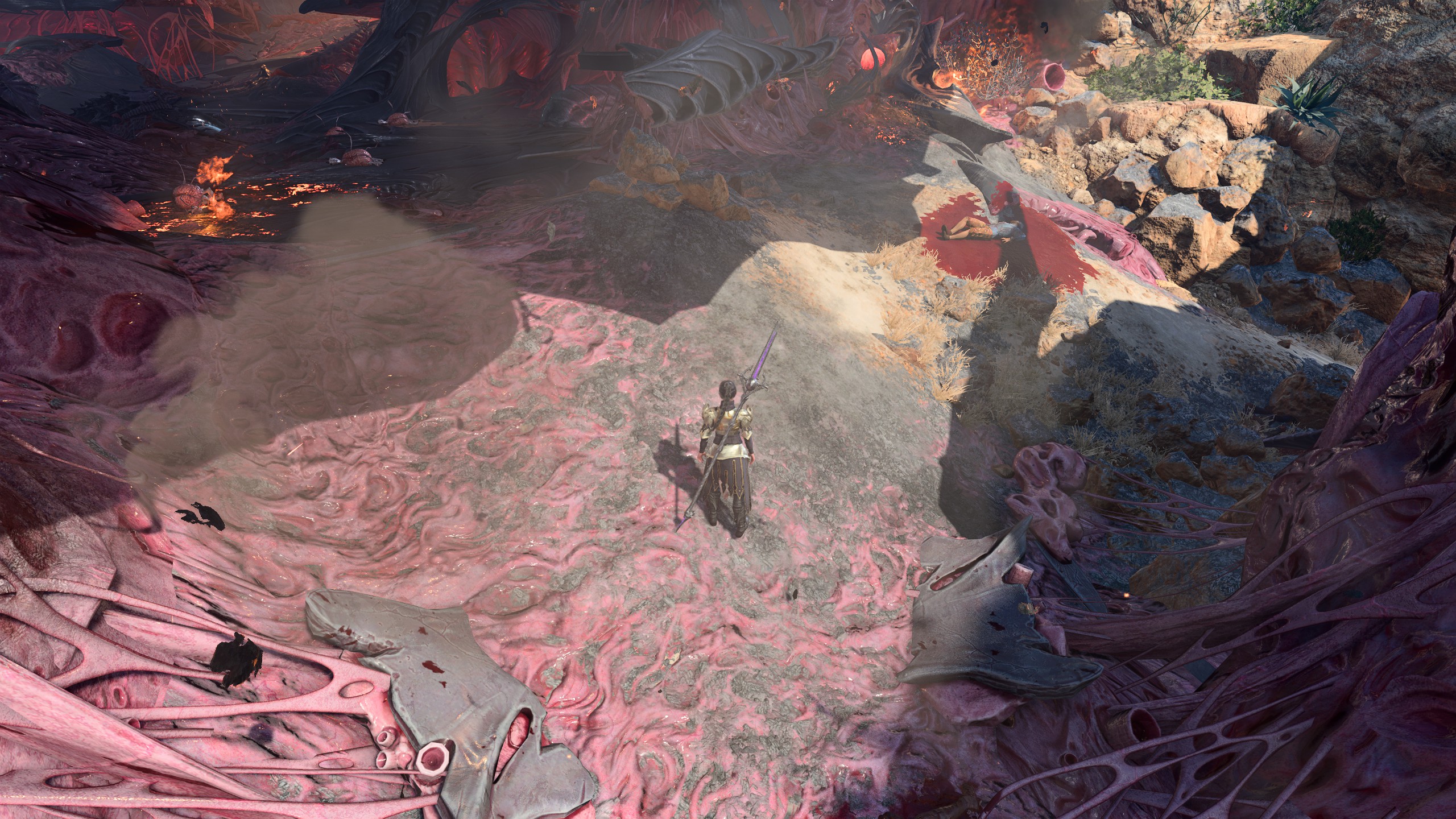
After escaping the nautiloid and getting your feet on the ground once more, you'll find yourself alone, but not for long. Your first companion, Shadowheart, will be just ahead of you, but with only two characters you're still pretty vulnerable. Thankfully, you'll be able to roll with a full party in a matter of minutes.
Just past the destroyed nautiloid, you'll find Astarion hanging around up a hill, who's utterly essential if your own character isn't proficient in sneaking or picking locks, as he's a rogue. Further up the path, you'll see a magical portal, and that's where you'll find Gale, your cheeky wizard companion. If you're playing as The Dark Urge, you'll be encouraged to cut off his hand when he sticks it out of the portal, but unless you're a magical sort yourself, you probably shouldn't do that.
As you continue along this route you'll hear shouting near a gate. Ignore that for the moment, because very close by you'll discover an imprisoned githyanki, Lae'zel, your unfriendly fighter companion. You'll need to talk some tieflings into leaving her alone before you can get her down from her suspended cage, however. If you recruited the other three companions, you won't have room in your party for her, so just tell her to meet you in your camp. You can visit her there at the click of a button and then rearrange your party should you wish.
Head back to the gate where you heard shouting and you'll become embroiled in a battle against a goblin raiding party, and that's when Wyll the Warlock leaps into action, after which you'll be able to recruit him as well. The final companion, Karlach, is found later on, but by now you have plenty of companions to mix and match.
Get the Speak with Animals and Speak with Dead spells ASAP
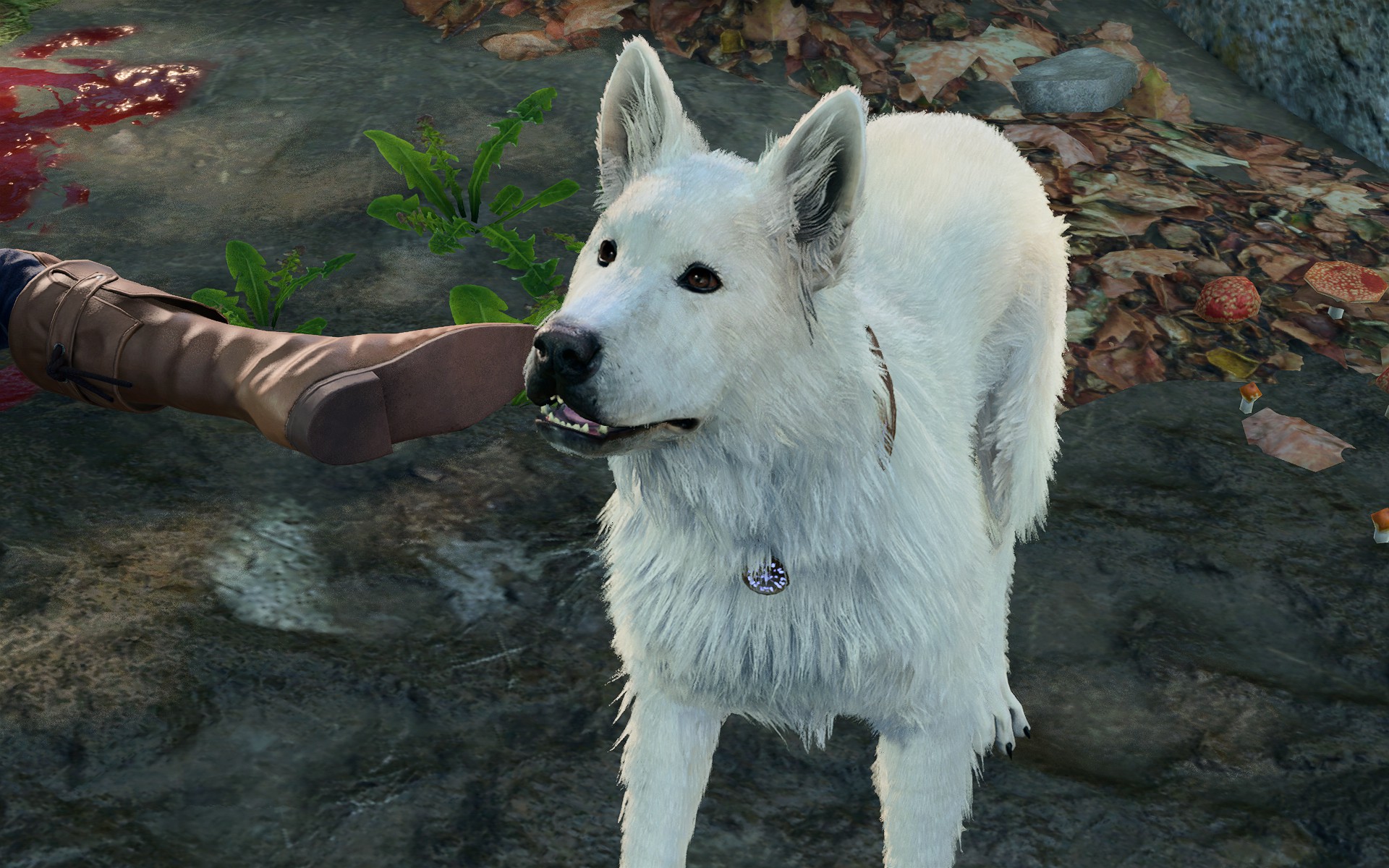
These two spells might not seem essential, but if you've played Divinity: Original Sin 2 before, you'll know that you can't live without them, especially Speak with Animals. Most critters have something to say, and while a lot of the animal dialogue is played for laughs, they can also provide important information, impart secrets and even team up with you. It's always handy to have the ability to make an animal turn against its master, especially if that master is going to try and kill you.
Speak with Dead isn't quite as useful, and a lot of corpses will have nothing to say, but just like Speak with Animals the dead can share information with you, help you with quests, warn you about dangers ahead and spill secrets. So this is still a very useful spell.
Even if your character can't learn these spells, your companions can. You'll also find spell scrolls, and even items that give you these powers while you wear them, like an amulet you'll find in the Dank Crypt early on, next to Withers' sarcophagus.
Recruit Withers
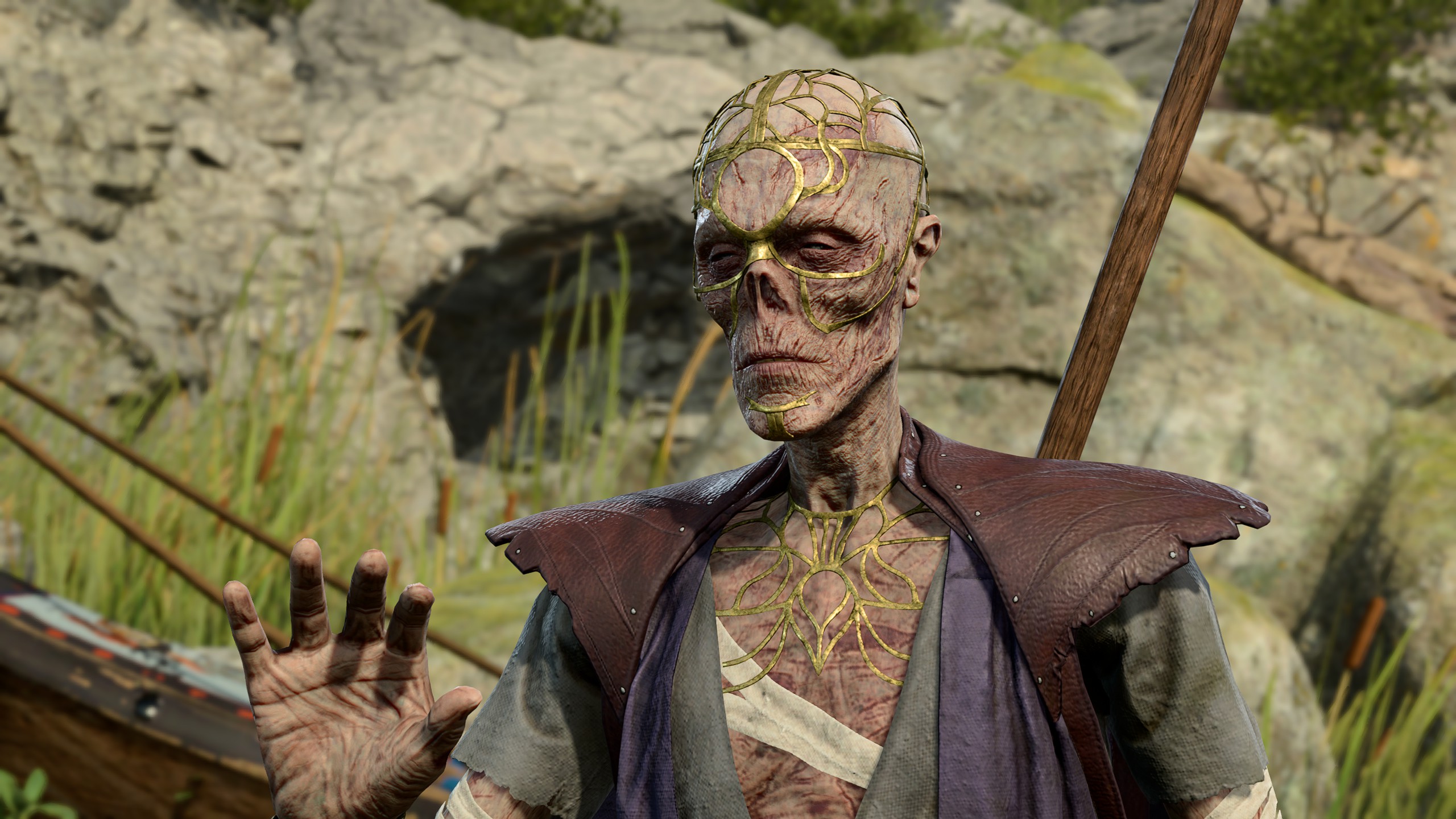
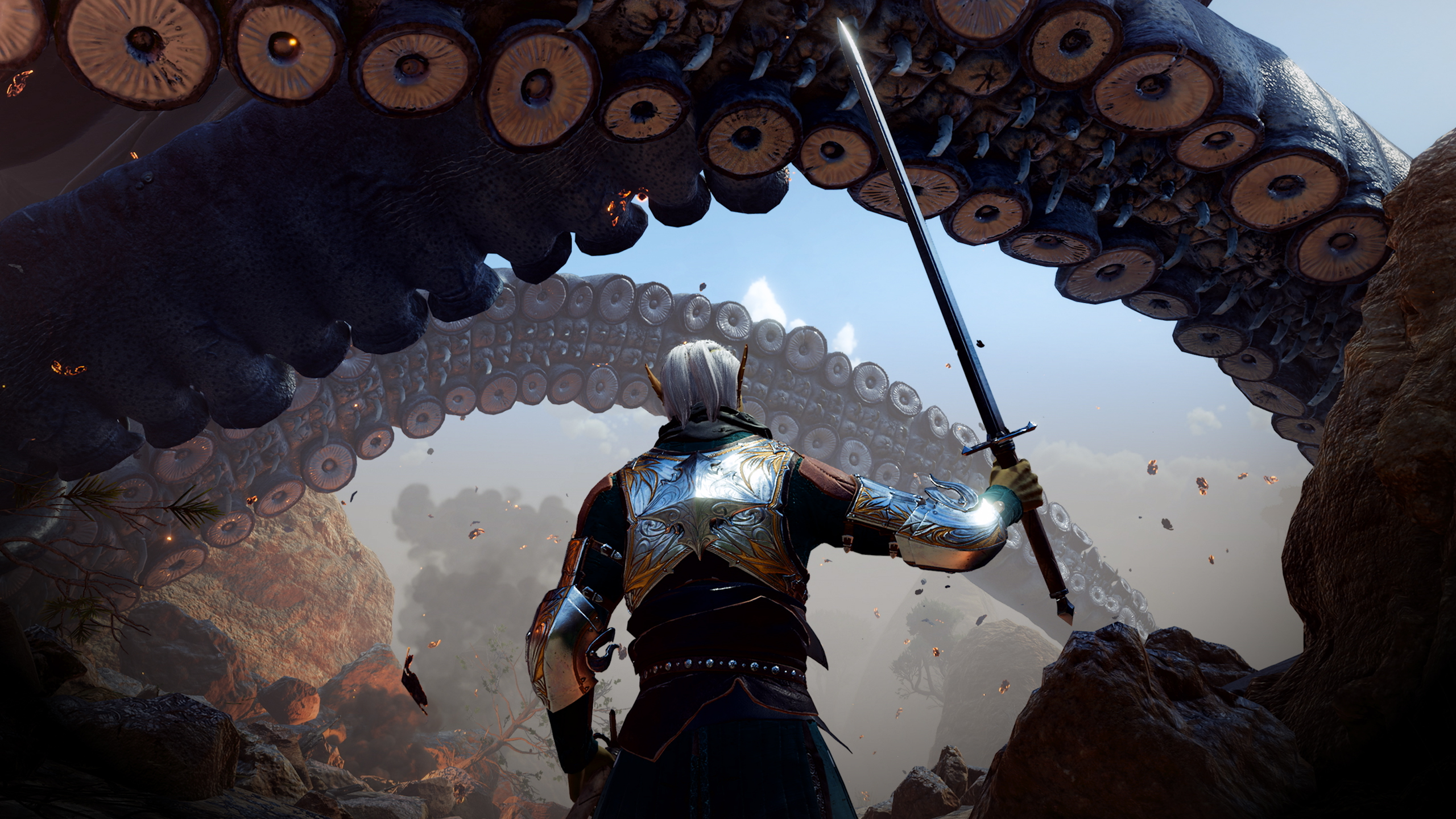
Baldur's Gate 3 classes: Find your perfect profession
Baldur's Gate 3 races: Pick your favorite face
Baldur's Gate 3 companions: Learn who's who
Baldur's Gate 3 builds: Optimise your class
This undead lad can be found in the Dank Crypt beneath the ruin that's right ahead of where you escape from the nautiloid. The door is locked, but you can also access the building from above, by dropping a rock on a crack in the floor. Luckily, even if you miss him in the crypt, he'll eventually show up at your camp on his own. You're just that popular.
You'll want Withers on your team because he's how you respec your characters, letting you right mistakes for gold. You can even change your class. And this goes for your companions, too. Withers also has a side hustle as a mercenary recruiter, letting you hire more companions, though these ones won't be as involved in the story. What a helpful cadaver!
Once you recruit him, he'll hang out in your camp forever, and he's not the only one. Pets, like a dog and an owlbear pup, can be acquired, as well as other camp followers like Halsin the Druid.
You can save nearly anywhere
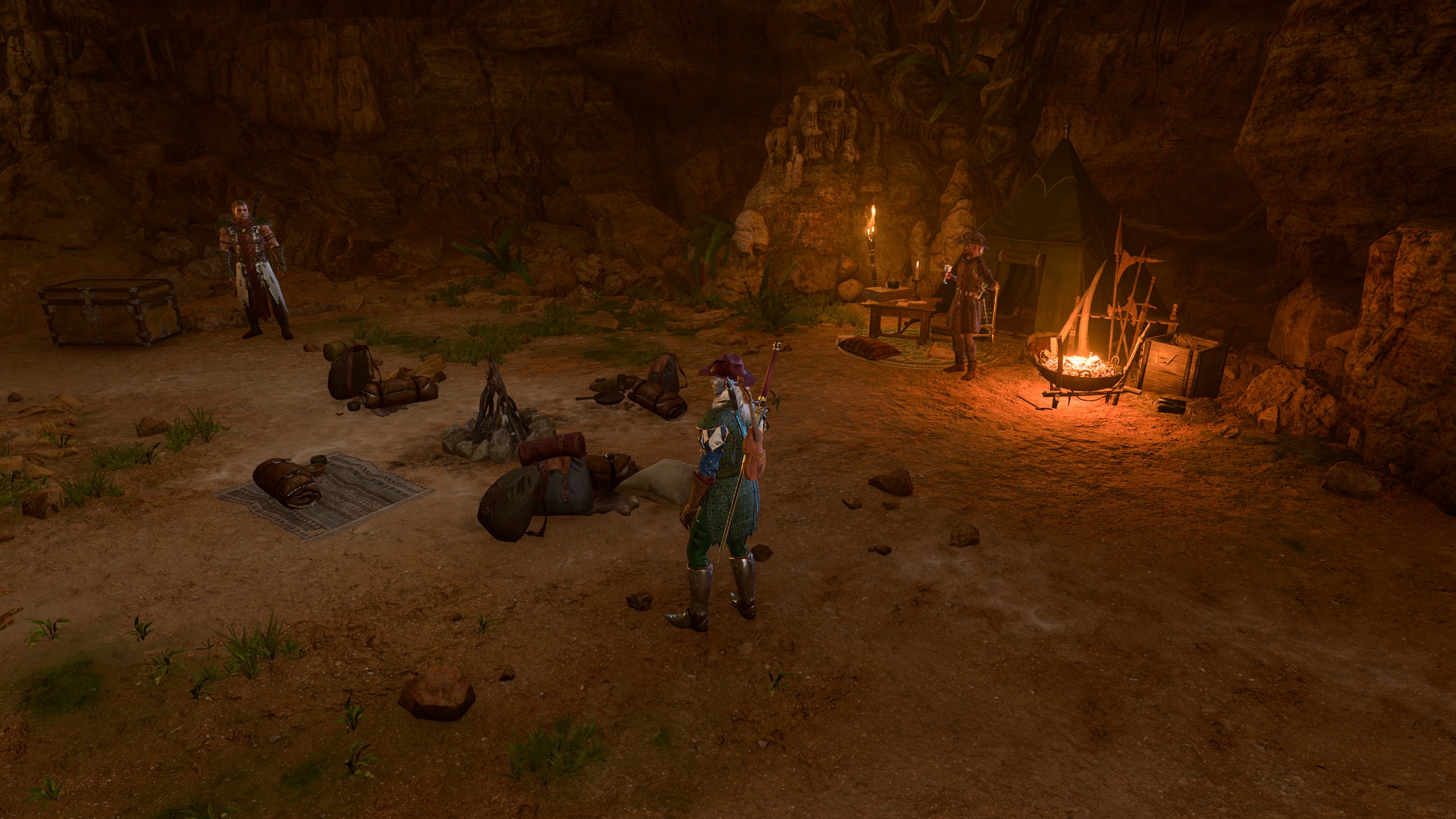
In the middle of a conversation and you don't really know what dialogue option to pick? Thinking of experimenting in the middle of a fight and worried you might accidentally kill your whole party? About to do a skill check and unsure if you'll succeed? Just save!
There are hardly any restrictions on saving, so you can save scum to your heart's content, letting you take as many risks as you'd like, safe in the knowledge you can just turn back the clock a few seconds and rectify any bad rolls. Since the turn-based battles can get pretty intense, and some of the truly massive ones might take you the better part of an hour, making mid-battle saves is particularly essential.
This goes for resting, too. If you've run out of spells and you're in the middle of a dungeon, you can just hit the camp button and your party will set up camp in the dungeon itself, allowing you to take a long rest as long as you have camp supplies. Conveniently, you'll find them scattered everywhere.
You can and should use turn-based mode out of combat as well
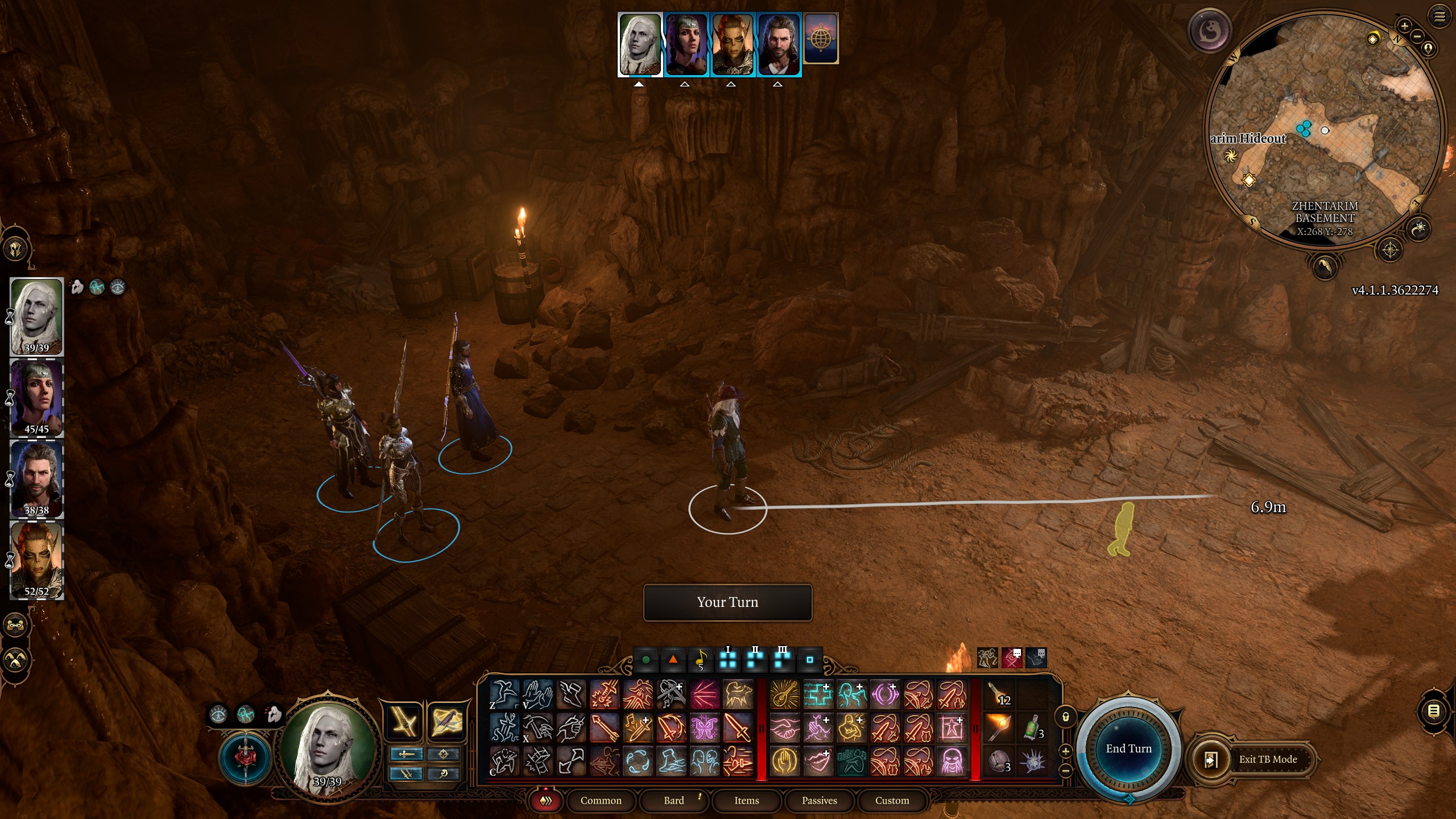
When you're out of battle the game switches to real-time mode, but you can still fire up turn-based mode even when you're not duking it out with enemies by hitting the big button to the right of your action bar.
In turn-based mode, it's much easier to sneak around and avoid enemy vision cones, because they aren't constantly moving around. This gives you more fine control over your party as you navigate traps, too. Fiddling around in the menus and your inventory doesn't pause the game, which is a problem in real-time mode, but not an issue at all if you're in turn-based mode.
The Guidance cantrip is your best friend
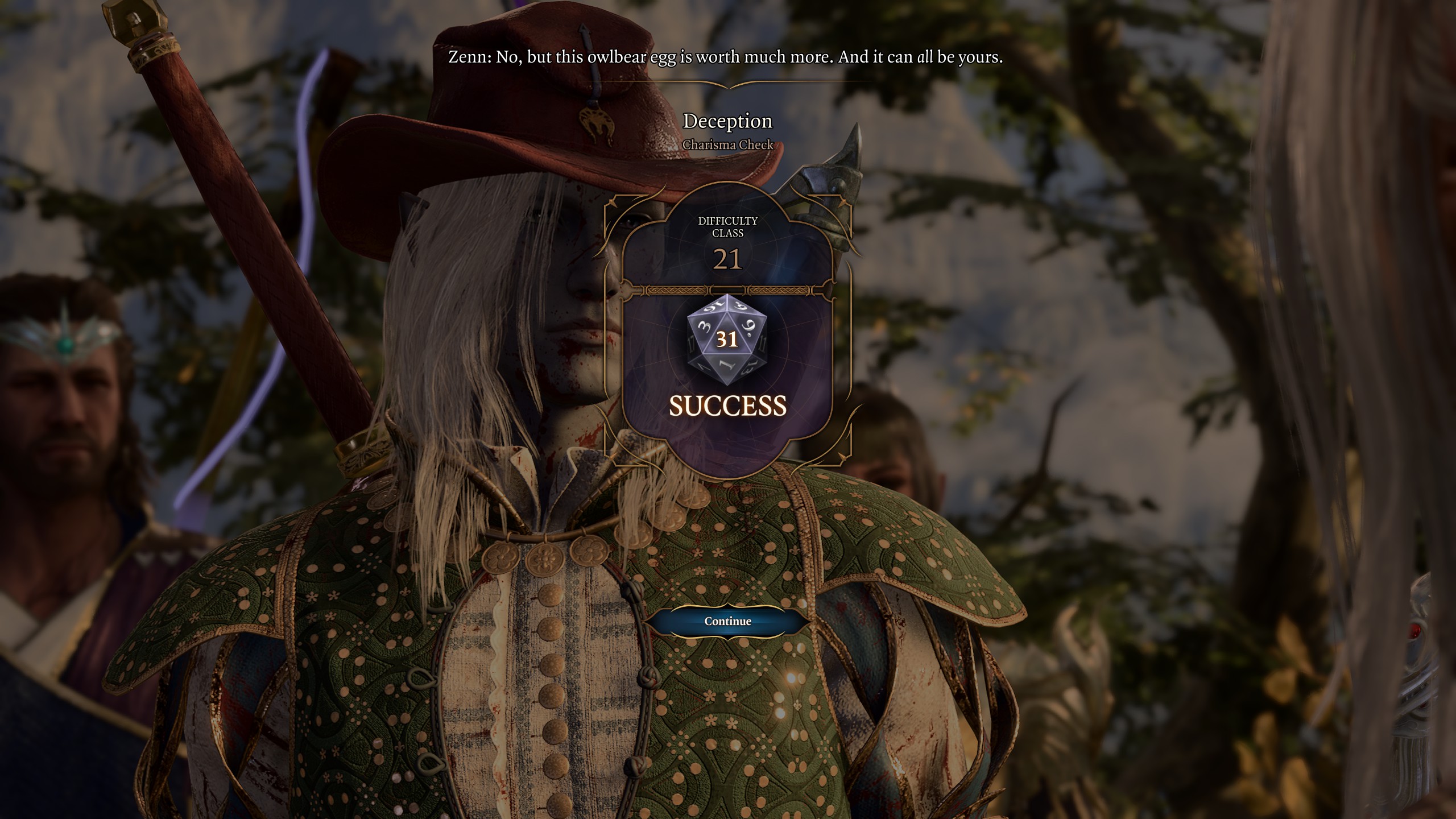
Guidance is the bane of tabletop DMs, because every time a player is asked to roll for Perception or Deception or Intimidation or whatever the check is, the party's Cleric will say, "Oh, um, can we say I gave them Guidance before this?" Baldur's Gate 3 is an agreeable DM: It says yes every time, allowing you to add Guidance to any skill check as it happens, adding a d4 to the roll. That d4 has several times been the difference between a pass or fail for me. Guidance is a Cleric and Druid cantrip, and Shadowheart knows it, if you're bringing her along.
The Friends cantrip is also extremely useful for dialogue checks. It's an enchantment, so your wizards and bards can get it, and it gives you Advantage, meaning you roll twice instead of once, picking the dice with the highest roll.
You can and should split up the party sometimes
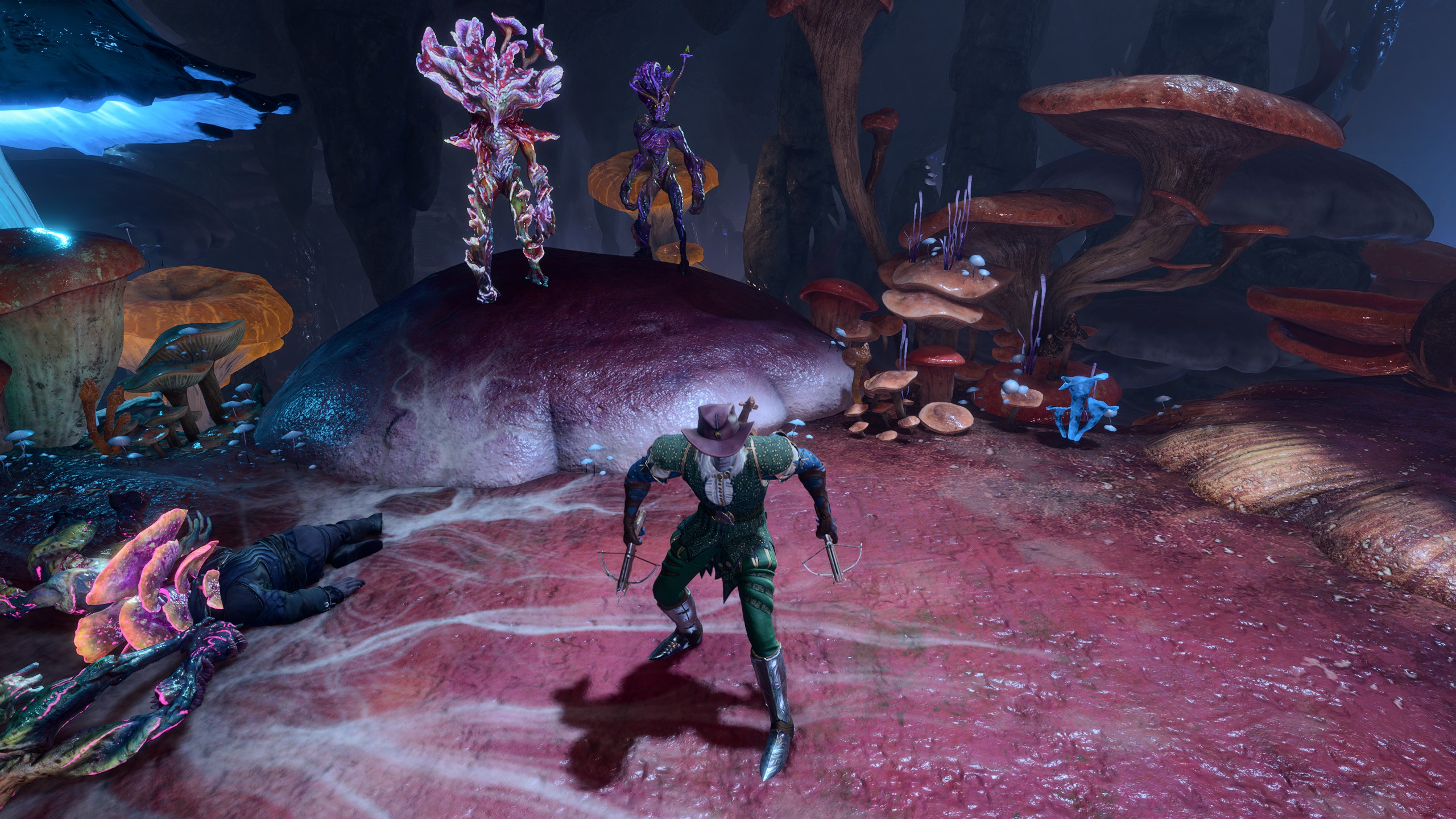
There's a group mode icon below your character portraits on the left side of the screen. Click it, and they'll exit formation and you can move them individually without the others trying to follow. Park the team in a safe place and let your Rogue sneak ahead to pass difficult stealth checks, or let one of your more athletic types leap across gaps and recover treasure.
It's also essential for positioning your party members before a big fight kicks off. If everyone is grouped together, a single fireball can spell disaster. Stick your ranged characters up high, put your Rogues in dark places where they can stay in stealth, keep your Wizards back and put your Fighters on the frontline.
You can activate levers and buttons with arrows
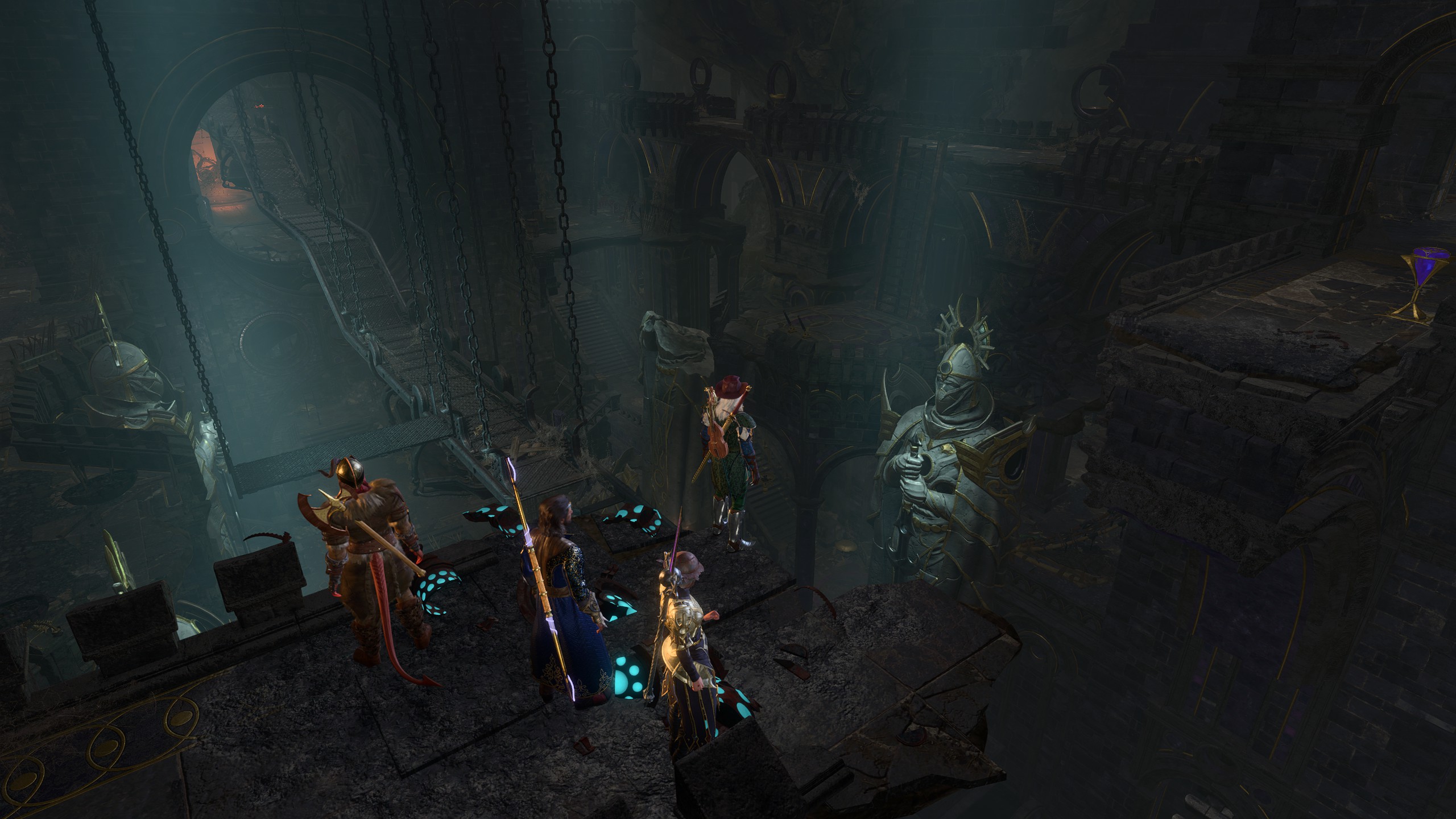
To progress through a dungeon you'll sometimes need to hit a lever or a button that's out of reach, but this isn't a problem at all. All you need to do is fire an arrow at it, which for inanimate targets has a 100% success chance even if they are out of optimal range.
If you need all your party to stand on a moving platform and activate a lever to move it, you can use arrows here, too, or summon Mage Hand, a big spooky hand that serves as a temporary companion that can interact with the environment.
Bring a spade with you everywhere
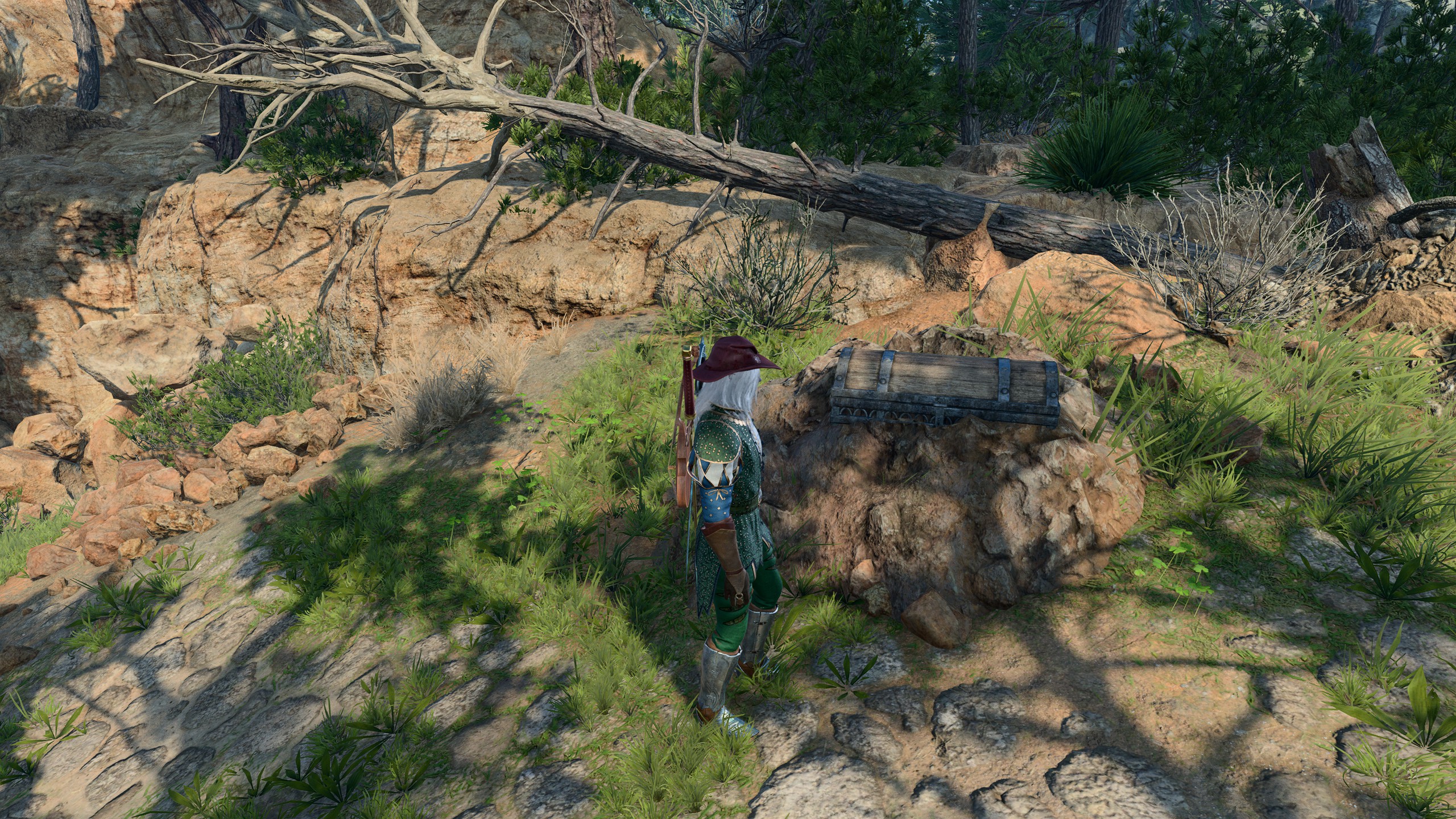
As you're wandering around you'll roll skill checks passively to see if you can spot hidden things, including mounds of dirt where treasure is buried. These can only be dug up if, you've guessed it, you've got a spade handy.
Luckily, you'll encounter a mound of dirt with a spade already stuck in it next to the nautiloid crash site, just before you reach the Enclave with all the Druids and tieflings. You'll find spades throughout the game, but you might as well just bring this one around with you everywhere.
If you can talk to an enemy before a fight begins, you can probably avoid violence
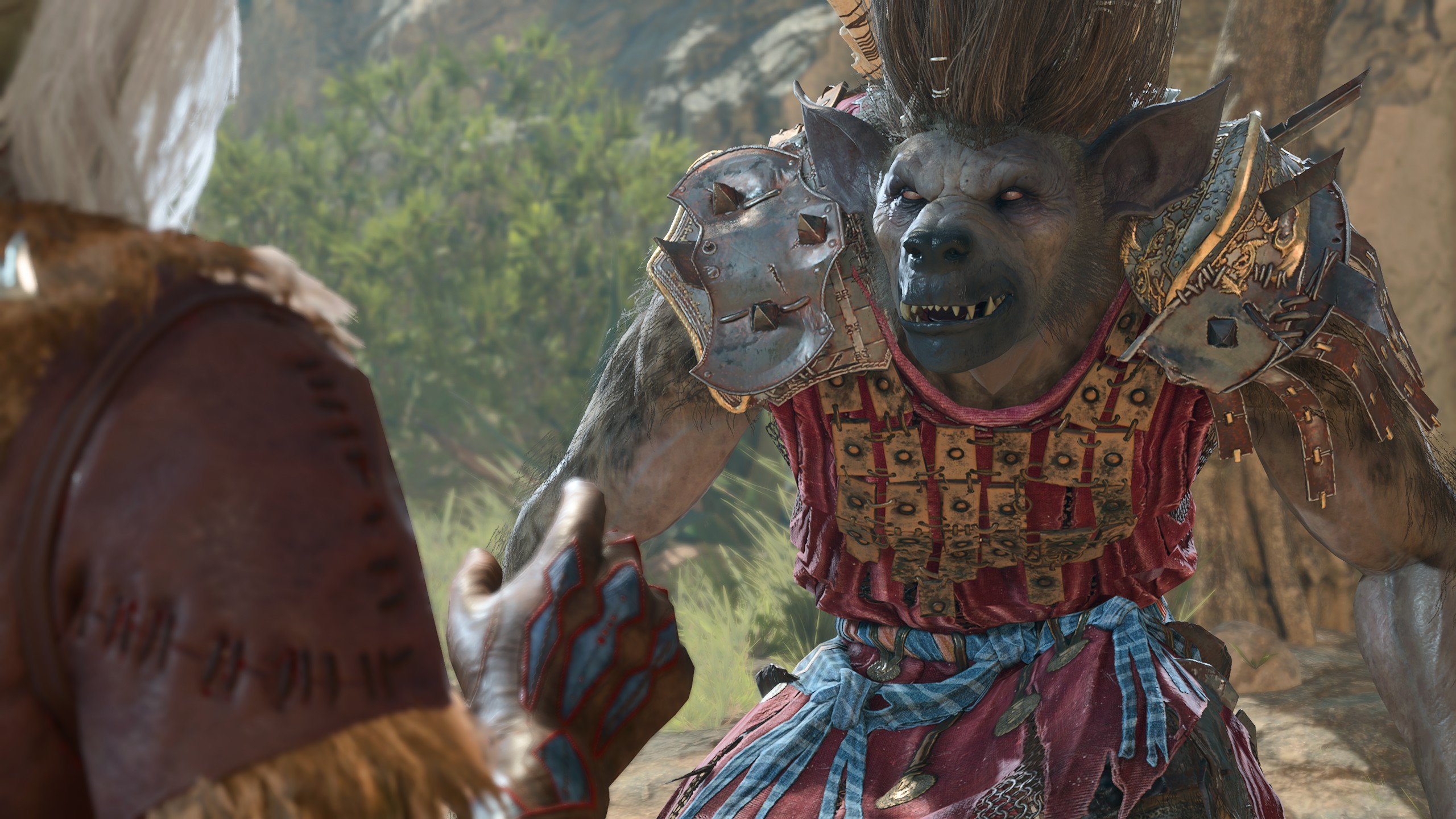
When you'd prefer to spend a bit of time just traipsing around and not murdering things, it's surprisingly easy to avoid a lot of fights. Plenty of encounters will start with a dialogue sequence, which often includes skill checks to talk your way out of a scrape.
You can intimidate, persuade or deceive potential enemies, and there are a lot of class-specific dialogue options that serve a similar purpose. You might even be able to get a reward out of it, scaring your conversation partner into giving you some gold so you don't murder them.
Roll a Bard
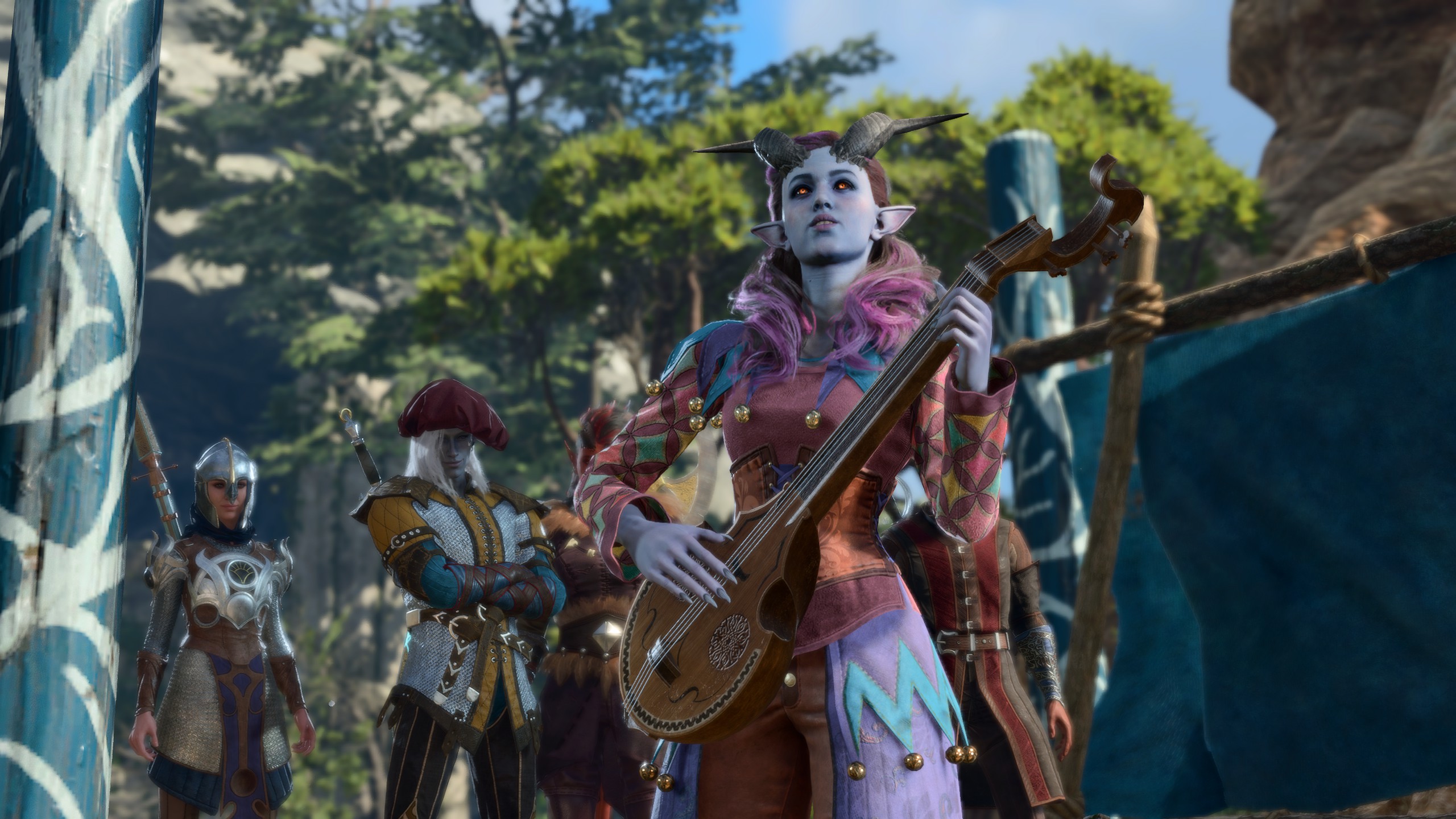
Look, every class has its advantages and cool hooks, but Bards rule. They are the perfect player character. You can sneak, you can cast spells, you can buff your party with music and if you pick the College of Valor or College of Swords subclasses you can also hold your own in a fight.
As a Bard, you can even make a bit of cash by putting on impromptu musical performances for crowds, who will then gather around to dance, clap and pay you for your services. It's not going to net you nearly as much gold as a dungeon delve, but you also won't get sprayed with acid or pushed into a bottomless chasm.







